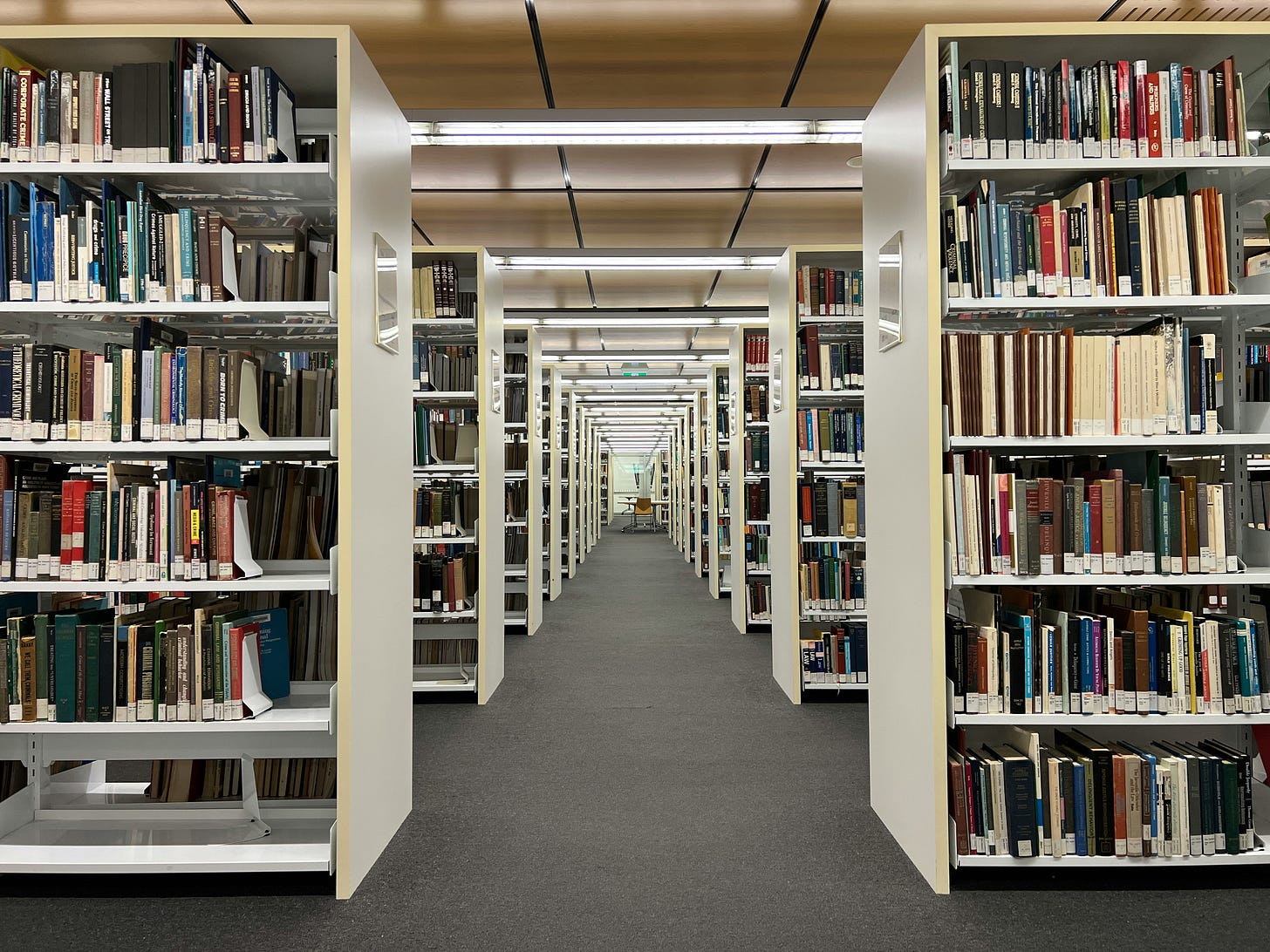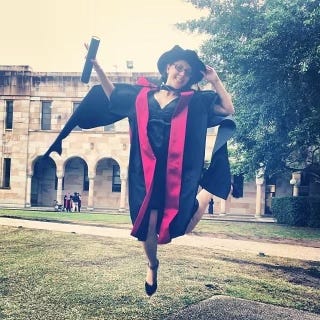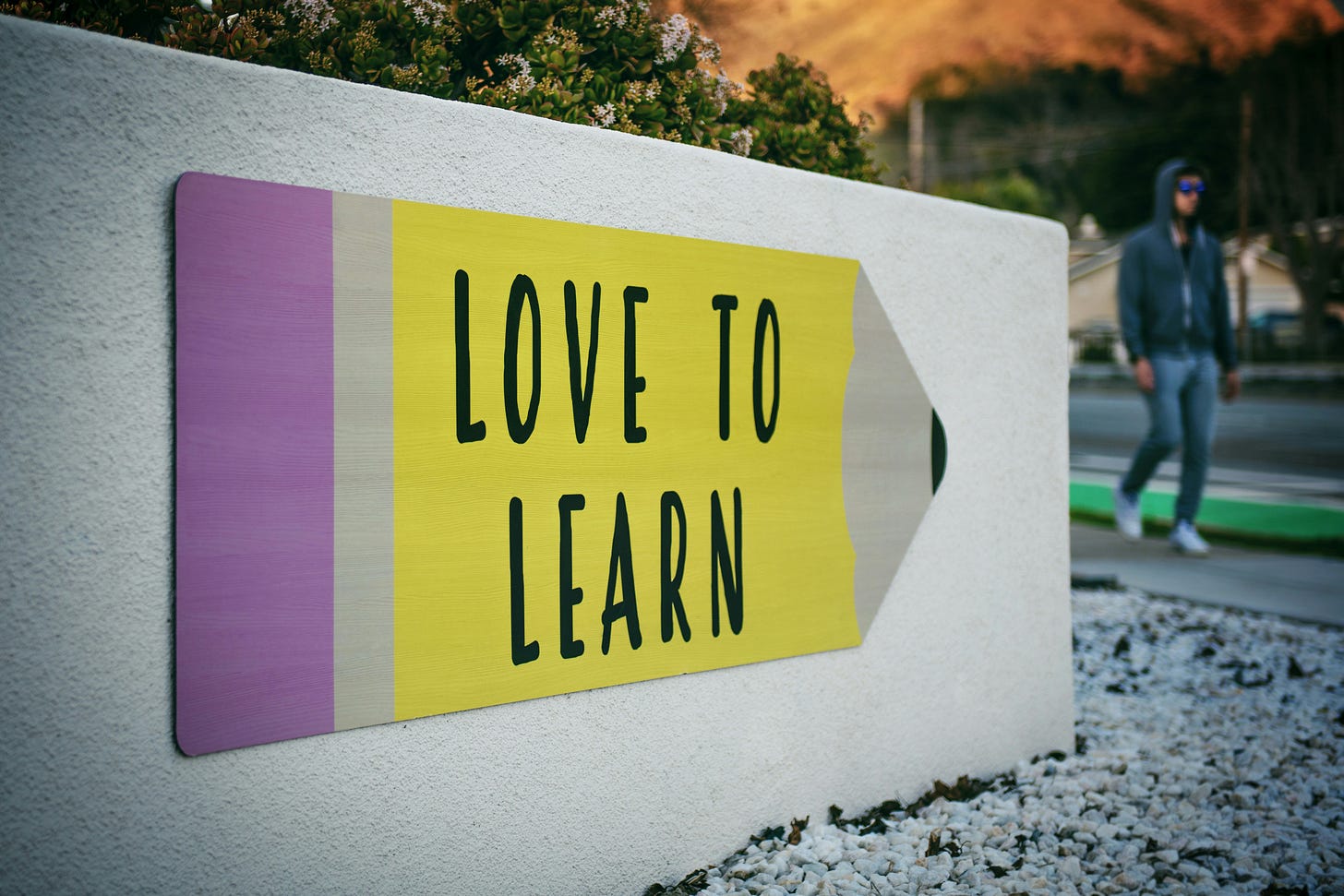So, you want to do a PhD on ‘Youth, Peace and Security’?
Some general advice from an academic on pursuing a PhD

So, you want to do a PhD on ‘Youth, Peace and Security’?
Wonderful! We need more careful, nuanced work on the complexities of youth-led peacebuilding and agendas for inclusive peace! Undertaking a PhD is a significant amount of work. It will take a lot of your time, your focus, and commitment. It is a big undertaking, and needs to be seriously considered before jumping in. So, before you jump, here is some general advice that might be helpful.
As an academic who researches the YPS agenda, people often ask me about the process of starting and doing a PhD in this space so thought I’d collate my insights into one easily accessible place for everyone. This post is targeted at those who have completed a Masters, who probably work in the peacebuilding/ practitioner space, and are who thinking about doing a PhD.
All of this should be read simply as my opinion, and as generalist advice from someone who has been in academia for over 15 years. My expertise is academic, and more specifically, it is in deeply qualitative and feminist, trained in Anthropology, Peace Studies and International Relations. Research that is situated in other disciplines or is more quantitative in orientation (which also is incredible valuable!), may have different preferences and priorities you should learn about. Additionally, my expertise is not in admissions processes, or having knowledge of all the different programs that exist, or of all the academics who may supervise. This is important information for a prospective candidate to seek out themselves in relation to their own interests, requirements, and considerations.
As academics we get lots of queries about taking on students, and we can only supervise a fraction of those who contact us. These are tips to give yourself the best chance, and to think if a PhD is even the right process for what you want to achieve.
With that said, here are some questions to ask yourself and some advice to consider:
1. Should I do a PhD or policy research?
Let’s talk about the proposed project (what you want to do your PhD ‘on’) first.
Prospective PhD candidates will often say that they want to do a PhD on “YPS and X country/region” or “YPS and other thematic area (young women/ PCVE/ etc)”. This is a great place to start. A PhD absolutely can be focused on real world contexts, the implications of policy implementation, and experiences of certain groups of people.
However, prospective students often struggle with what theoretical or conceptual lens they will be using or developing or contributing to, they often aren’t sure. Again, this is ok. This may just mean they need to go away and do some more reading (or do a Masters or other formal study that will expose them to these concepts). But it may also mean that a PhD is not right for the the type of research they want to do, which really is more policy-oriented research.
Research that wants to evaluate a program or describe a project is not sufficient by itself for a PhD project. These can (and should!) be written up as policy or public reports to contribute to practitioner dialogues and knowledge. But for a PhD in the social sciences or humanities, you need to be asking different questions.
While PhDs can (and, many would argue, should) have real world impacts, the primary purpose of a PhDis to make a new contribution to scholarly knowledge. This is what you will be examined on at the end of it all. It is more than policy implications, and it requires careful thinking about theoretical and methodological approaches. It is also not fast or quick-outcome oriented. It is three to five years (depends on where you do it, see below) of work primarily towards an academic thesis document. It asks ‘how’ and ‘why’ questions, not just ‘what’.
Finally, on this, the theoretical and methodological questions you will ask will be different in different disciplines, and you can do a PhD that relates to the YPS agenda from many different social science or humanities perspectives. You should consider what your interests are, what your professional background is, what you did your Masters in, and where you feel most ‘at home’ when reading academic work that you are interested in. Find your people. Find where you want to make that new contribution to scholarly knowledge!
So, you can ask yourself: do I want to do a PhD (and all it involves with respect to the academic expectations), or do I want to find a way to do practice-oriented research on YPS?
And: do I know what my theoretical orientation and framing is, and where I might contribute to existing scholarly debates? Or do I need to do more research first?
2. Can I do a PhD ‘on’ ‘YPS’?
Continuing with thinking about the project itself, the other important consideration for prospective students is to think critically about what YPS is (and what it isn’t).
YPS isn’t a theory. It is a policy framework, or a global governance agenda, or an umbrella term for myriad peacebuilding programs and policies. You can’t apply ‘YPS’ in order to study something.
Rather, flip the question. What do you want to know about that paying attention to the YPS agenda can help you understand? Even if you want to study the YPS agenda as an agenda you will still be looking for something beyond. For example, what does YPS tell us about X element of global governance/policy making/ advocacy practices etc?
Though young, the YPS agenda is already diverse, complex, multilayered, multi-sectoral, involving innumerable actors and organisations. Which aspect of it are you interested in?
I would also encourage you to think bigger than the YPS agenda itself—what is it about youth-led peacebuilding or youth inclusive policy making at global levels, or youth leadership and security sector reform (or, or, or—the possibilities are endless!) that interests you? There was a lot of youth-led peacebuilding happening before Resolution 2250, and there is a lot going on without reference to the YPS agenda still. YPS is just one part of a much broader field of youth inclusive peacebuilding.
Similarly, in the academic space, there is very important work that has been going on for decades on youth and peacebuilding, long before 2015. A PhD project that wants to engage with YPS must also engage with this existing literature and academic discussion.
So, instead of asking ‘what do I want to know about YPS?’, ask yourself: what does looking at YPS help me understand better? What might I learn about X by paying attention to [some specific aspect of] YPS?
3. How should I choose a supervisor?
Moving from conceptualising the project to setting yourself up to successfully do a PhD, this next point is about considering your supervisors.
While there has been a wonderful proliferation of scholarship on young people and peace in recent years, it is still a very niche area of academic practice. We are a very small community; and while some of us may have capacity to take on students, that is not always the case. It is likely that your supervisor or supervisors will not have detailed knowledge on YPS or even on youth and peacebuilding.
I would encourage you to think about what expertise you bring, and what you would like from a supervisor. If you are interested in youth and peace (or YPS specifically), you probably already have some expertise in this space!
Consider seeking out a supervisor with complementary expertise for the broader project. If you want to do a project on young women’s leadership, perhaps someone with experience in gender and peacebuilding could help. Or if you wanted to do a project on youth engagement in activism against environmental destruction, perhaps someone with environmental security (or peace) knowledge could be useful. Or if you wanted to do a project on youth-led local peace programs, perhaps someone with community development expertise would be good. Or you could consider a supervisor with expertise on the region you want to look at. Or a supervisor with the theoretical orientation that you want to use and apply in your own context.
You will have to do the searching for this person—maybe from readings you did during your Masters, and via web searches, and word of mouth from friends and colleagues.
There is some excellent commonly given advice, which is to find a supervisor who you get along with, and who aligns with your conceptual approach, but also with your orientation or view of the world. You want to have a good relationship with your supervisor, and it is an extended professional relationship, so it is worth choosing with care.
By the time you finish your PhD you will be the most expert person on the topic you have studied. That is because you must put in the work consistently throughout to learn new things and engage in new literature. You need to think about what kind of knowledge and what kind of support you will need along the way.
My PhD supervisor was very supportive of me doing work on young people, even though she didn’t know anything about that space. She had expertise on gender and peace that meant we were ‘oriented’ similarly in terms of what we wanted to find out in the world, and she provided me with excellent guidance and support on the theory-crafting in my PhD through her knowledge of theories and debates in peace and conflict studies.
It is unlikely you will find a supervisor with detailed expertise on youth, so the question you can ask is: where do I need support and expertise to enable me to succeed in my project?
4. How do I find a PhD program?
While all this advice is specific to thinking about a project ‘on YPS’, it is still general in nature in terms of how to actually go about applying for a PhD. This is because it is very hard to provide any specific advice in a post that deliberately has no regional focus (either in candidates’ origins or possible target locations for study). This means a lot of this hard work is up to you individually.
There are some general commonalities for PhDs, but there is also a lot of variation from country to country and region to region.
In some places it will take 3 years and just be focused on the thesis, in others it will take 5 and involve a foundation year (or two) of coursework. In some places you will be expected to engage in teaching assistant work, in others you will have to apply separately for those kinds of roles. In some places you will have to pass ‘comprehensive exams’, and in others you do not. In some places there are expectations to publish article/s along the way, in others the focus is on the thesis itself (and in others you may have the choice to publish ‘by publication’ writing multiple articles instead of one long dissertation). In some places you have a main principal supervisor and an associate supervisor, in others you might have a ‘committee’ or ‘panel’ or ‘team’. In some places you will be expected to undertake a verbal ‘defence’ or ‘viva voce’ at the end of your PhD, and in others your thesis will be examined in written form only. These are just some of the variations. That is before we even talk about how PhDs are funded or when there are fees, or visas, or any of those considerations.
All of this is to say, you must do the work of exploring where you want to study. Both in terms of what country, but also what institution and specifically what kind of department. Maybe you are looking at programs in your own country or region, or maybe you want to travel elsewhere to study. This isn’t something I can offer advice on, as it will be specific to you.
However, there are a few good resources out there you may want to look at as you think about these things (and again, these are within my own discipline, and there will undoubtably be plenty more resources you can find!), with advice specific to certain regions/countries.
The British International Studies Association (BISA) has a wonderful series of blogs on various aspects of applying for a PhD in the UK as well as PhD candidates sharing their experiences.
In the USA context the American Political Science Association (APSA) has a page that lists possible PhD programs, and a page with questions you might want to ask about departments and supervisors (this list is USA-specific in some ways, but is a good tool in general).
This page gives some general information about doing a PhD in Australia.
Here is some information about the PanAfrican University Scholarships, and a news article about hopeful changes to support for those from African countries to undertake PhDs.
And here is some information about applying in Europe.
Individual universities will also have helpful information about the process and requirements on their websites.
You will also need to look into funding opportunities. These can be difficult to obtain. Sometimes the university has scholarships, sometimes there is funding through government schemes. PhD positions can be advertised connected to larger grants (often with a more specified project). You should also look at funding opportunities specific to your country of origin, or regional networks. Again, this is not something I can advise on as it is so diverse, but I strongly recommend that unless you have lots of independent funding, you do not pursue a PhD unless you can secure funding/ scholarship/ fee waivers etc. It will give you the security and time commitment to be able to meaningfully make the most of the program you enter.
Ask yourself: what is important to me in relation to where I want to live, what considerations about my family might I need to take into account, what kind of department do I want to study in, what are the funding opportunities, what is the PhD community like, where are possible supervisors based? Am I happy with these decisions?
5. Starting with the basics
Finally, just a note on making contact with potential supervisors, and the very basics to consider.
When you reach out to a potential supervisor, you should:
Be specific about why you are reaching out to them and want to work with them
Be specific about why you want to do a PhD in their School/Department and University
And have the following ready to attach:
A CV that details both your education and work history, as well as any publications or public facing pieces you’ve written
A short, clear project proposal that is referenced with academic literature
Academics may not respond (this may be rudeness but this may likely be an oversight—we can get large volumes of emails, particularly at certain points of the teaching semesters and things fall through the cracks), or they may take some time to reply. They may not be able to supervise you, and you may have to approach a number of people before you get a positive response. Potential supervisors might also direct you to a formal institutional process you have to go through instead. Providing useful information about you and your proposed project will help make the most of that initial contact.
Ask yourself: How can I make it as straightforward as possible for a possible supervisor to consider me and my project?
Concluding comments
Doing a PhD can be both difficult and daunting, as well as an incredibly rewarding thing. Close scholarly attention to youth-led peacebuilding can enhance both academic work on inclusive and sustainable peace, and practitioner and policy work on inclusion of and partnerships with youth. But there are many other ways to create knowledge ‘on’ YPS, and it is up to you to think about what a PhD offers your particular situation and plans and if it is even the right step for your career.
I hope this is a helpful short overview of some common questions I receive that you might share, and I wish you all the very best with your future research and practice on YPS and beyond!
If you are an academic with additional (or different) advice please feel free to add it as a comment below. If you are a PhD candidate (or have received your PhD) and have further advice (or disagree with some of my advice) please also feel very welcome to share your experience and advice below for others. I constantly learn from and am grateful for the community I am a part of and would love to hear your thoughts.
An important disclaimer: Supervising PhD candidates is one of the great joys of the job of being an academic! However, I am very unlikely to be able to supervise your PhD.
This is because academics only have a certain amount of time to supervise amongst the other parts of our job; and I monitor my supervision load carefully to ensure that I can give meaningful time to those students I have committed to supervising. You are welcome to still contact me, but I am grateful in advance for your understanding of my limited capacity.






